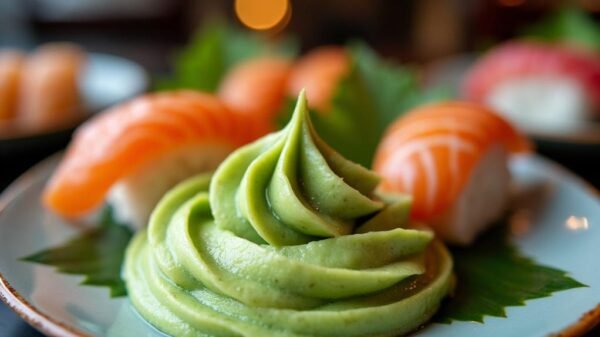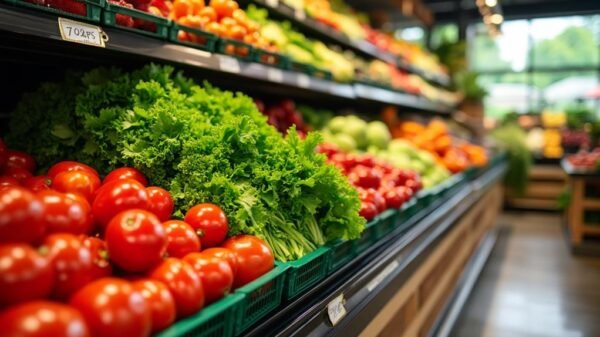You might think of Trader Joe's as a go-to for unique snacks and organic options, but their history includes some significant recalls that raise questions about product safety. From contaminated ice cream to falafel with unexpected ingredients, these incidents highlight the complexities of food quality control. As you consider the implications of these recalls, it's worth exploring how they've affected consumer trust and what measures Trader Joe's has taken in response. What do these events reveal about the challenges faced by retailers in maintaining quality and safety?
Overview of Trader Joe's Recalls
Trader Joe's recalls products to ensure customer safety. The grocery chain has addressed serious issues such as contamination and mislabeling.
Recalls have involved items like cookies, falafel, and ice cream that contained dangerous materials, including rocks, glass, and metal fragments. Additionally, mislabeling has led to health risks associated with listeria and salmonella.
In some cases, insect contamination and bone fragments were found in soups and burgers, prompting immediate action. These recalls can impact Trader Joe's reputation for quality and customer service, raising concerns about their quality control and supply chain practices.
Nevertheless, Trader Joe's has consistently taken swift measures to remove affected products from their shelves, showing a dedication to customer safety. By tackling these challenges directly, they aim to maintain consumer trust, allowing shoppers to feel confident in their choices.
Understanding the implications of these recalls is vital for making informed purchasing decisions.
Notable Product Contamination Cases
Trader Joe's has faced significant product contamination issues, raising safety concerns among shoppers. Notable recalls include:
- Falafel and Pilaf: Recalled due to stones, posing choking hazards.
- Cold Brew Coffee and Matcha Ice Cream: Glass and metal fragments were found, highlighting the need for careful production.
- Multigrain Crackers: Metal pieces discovered led to immediate consumer safety actions.
- Snickerdoodles: Hard plastic found in cookies prompted a recall, disappointing many fans.
These recalls were initiated by suppliers to prioritize consumer safety. Trader Joe's is committed to providing safe, high-quality products.
It's essential for consumers to stay informed about such recalls to make safe choices for themselves and their families.
Mislabeling and Packaging Issues

Mislabeling and packaging issues threaten consumer safety. Recent recalls demonstrate this risk.
For example, Trader Joe's Lemon Chicken & Arugula Salad lacked crucial allergen information about wheat, which could harm individuals with wheat allergies.
Similarly, Hatch Green Chile and Cheese Tamales were incorrectly packaged, leading to potential confusion for shoppers. Incorrect labeling can conceal ingredient risks, posing serious problems for those with dietary restrictions.
In another case, bone fragments were discovered in Trader Joe's Chili Lime Chicken Burgers, necessitating swift action to avert choking hazards. Such occurrences highlight the need for rigorous packaging and quality control in food manufacturing.
Additionally, contaminated onions in ready-to-eat meals resulted in a health emergency, prompting urgent measures to safeguard consumers. These incidents show that even minor labeling and packaging errors can have significant repercussions.
As a consumer, remaining informed and cautious about product choices is vital to ensuring safety and dietary compliance.
Health Risks Associated With Recalls
Recalls pose significant health risks, particularly linked to bacterial infections like listeriosis and salmonella. These pathogens can result in severe illness or even death, underscoring the critical nature of food safety. When Trader Joe's initiates a recall, it often involves contaminated goods that may endanger consumers.
Here are some notable health threats to consider:
- Listeriosis: This infection, often associated with tainted dairy products, can lead to severe complications, especially for vulnerable groups such as pregnant women, seniors, and individuals with compromised immune systems.
- Salmonella Infections: Commonly found in contaminated poultry, salmonella can cause intense gastrointestinal issues and poses a heightened risk for infants and young children.
- Hepatitis A: This virus can spread through infected food, emphasizing the importance of careful produce handling.
- Cross-Contamination: Poor food preparation practices can transfer harmful bacteria, raising the risk of illness from otherwise safe products.
Insect and Contaminant Concerns

Food safety concerns involve various issues, including insects and other pollutants. Recently, Trader Joe's Broccoli Cheddar Soup faced a recall due to the discovery of insects in the broccoli florets. This incident underscores the need for strict quality control in food manufacturing.
Additionally, the Organic Tropical Fruit Blend was recalled due to a risk of Hepatitis A contamination. Such diverse food safety threats raise serious questions about product integrity.
Trader Joe's addresses these issues with a comprehensive recall process to ensure consumer safety and uphold brand trust. Continuous monitoring and inspections play a crucial role in preventing similar occurrences.
As consumers, staying informed about these recalls allows for better decision-making regarding food purchases. Awareness of potential contaminants is essential for safeguarding health and enjoying the confidence that comes from knowing your food is safe.
This understanding promotes accountability in food production, benefiting everyone involved.
Consumer Reactions and Impact
Trader Joe's recalls have led to widespread consumer disappointment and anger. Customers feel betrayed and question their trust in the brand. Some shoppers appreciate Trader Joe's quick response, but the overall impact on consumer trust is significant.
- Customers fear health risks from the recalled products.
- Social media discussions amplify concerns and shape public opinion.
- The recalls spark conversations about food safety laws, with consumers demanding transparency.
- Shoppers scrutinize product labels more carefully, fostering vigilance.
These reactions illustrate the fragility of brand loyalty in the grocery sector. Trader Joe's recalls highlight the need for strong quality control systems.
As customers reassess their purchasing choices, the brand's path to regaining trust hinges on transparency and accountability.
Ongoing community discussions reflect a heightened awareness of food safety, prompting consumers to prioritize their health.
Ultimately, these recalls remind businesses of the importance of remaining diligent to sustain consumer trust.
Supply Chain Transparency Challenges

Trader Joe's faces challenges in supply chain transparency. Recent product recalls, such as Fully Cooked Falafel and Multigrain Crackers, revealed foreign objects like glass and metal fragments. These supplier issues pose risks to consumer safety, evident in the cases of Instant Cold Brew Coffee and Matcha Green Tea Ice Cream.
The ambiguity in the supply chain has led to additional recalls, including Soft-Baked Snickerdoodles and Chicken, Lentil & Caramelized Onion Pilaf, both associated with contamination. Such occurrences have eroded consumer trust, prompting Trader Joe's to reevaluate its quality control protocols.
These incidents underscore the critical need for transparency in the supply chain, essential for maintaining food safety and mitigating contamination risks.
As you shop at Trader Joe's, it's important to recognize how these supply chain challenges can affect your favorite products. Trader Joe's is actively working to overcome these obstacles and restore consumer confidence in their offerings.
Importance of Quality Control
Quality control is crucial for Trader Joe's because it guarantees that products are safe and free from harmful substances. This commitment protects consumers and ensures that they receive high-quality items.
Here are the key reasons why quality control is vital:
- Safety Assurance: Regular evaluations and inspections prevent issues such as contamination and mislabeling, safeguarding you from harmful ingredients.
- Timely Product Recalls: Trader Joe's acts swiftly to recall any products with quality concerns, demonstrating their dedication to consumer health and safety.
- Building Consumer Trust: By adhering to strict quality standards, Trader Joe's fosters trust among shoppers, allowing you to feel confident in your choices.
- Commitment to Integrity: The brand's prompt responses to quality issues reflect their serious approach to product integrity and safety, offering you peace of mind while shopping.
Lessons Learned for the Future

Trader Joe's prioritizes quality control. This commitment safeguards consumers and offers insights for future product recalls. Vigilance is crucial, as contamination incidents with rocks, glass, and metal fragments highlight the need for proper monitoring.
Swift action from suppliers and manufacturers to recall affected products demonstrates their dedication to consumer safety. Accurate allergen labeling is vital; mislabeling can pose serious health risks. Implementing strict food safety protocols helps mitigate risks associated with pathogens like listeria and salmonella.
These lessons underscore the importance of transparency in the supply chain, ensuring consumers can trust their purchases. Regular inspections and monitoring are essential for maintaining high safety standards. By adopting these best practices, Trader Joe's enhances safety and builds consumer confidence.
As you navigate the food retail landscape, remember that prioritizing quality control and safety can lead to a secure shopping experience. Embracing these lessons benefits everyone, allowing for safe and healthy food choices.


































